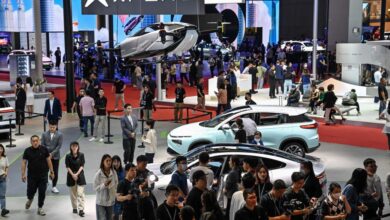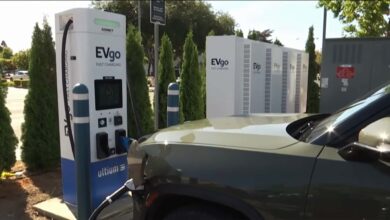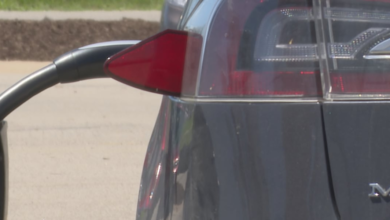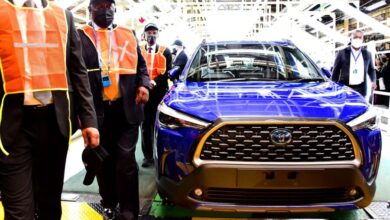Kwik Trip to get millions for EV chargers after lobbying Legislature | Government
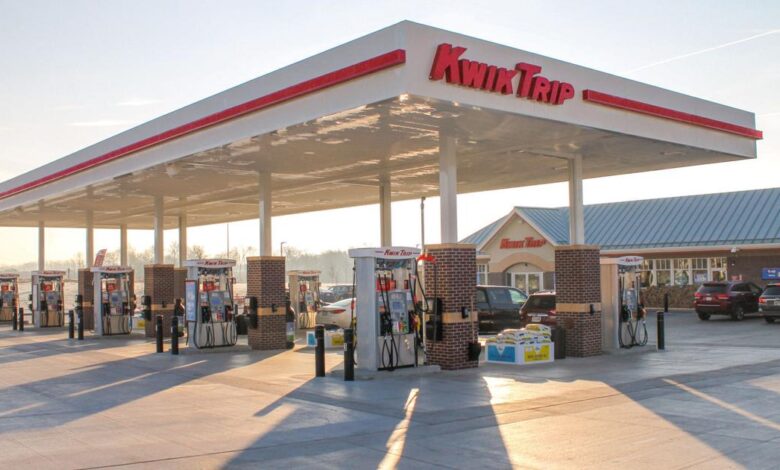
Coffee, car washes and electric vehicle charging.
That will soon be the reality for travelers stopping at dozens of Kwik Trip stores throughout Wisconsin — after the company extensively lobbied state legislators to accept federal money to expand EV charging access.
The ubiquitous, La Crosse-based gas station and convenience store chain was the big winner Thursday as the state announced the first round of businesses that will receive $23 million in electric charging infrastructure in every corner of the state.
Kwik Trip will receive over $8.1 million to install chargers at 24 of its stores, stretching from Mount Horeb to Ashland.
Kwik Trip is somewhat unique in that the company will actually own and operate the charging stations on their property, meaning it will directly receive the funding.
In other cases, businesses such as Culver’s or Festival Foods might agree to host a charging station operated by a third party, Wisconsin Department of Transportation spokesperson John DesRivieres said in an email. The outside entity would get the money, not the restaurant or grocery store.
Prior to March, Wisconsin was one of the only states left in the country that still had a policy barrier to accessing money from the federal government’s National Electric Vehicle Infrastructure program.
The industry standard is for EV drivers to charge their car much like filling up at a gas station, with customers paying based on how much energy they use.
But in Wisconsin, the only entities that could let drivers charge in that way, by the kilowatt hour, are regulated utilities like Madison Gas and Electric and Alliant Energy.
Other businesses could offer chargers, but at those stations drivers pay based on the amount of time they’re plugged in. The federal infrastructure program, however, wants everyone to be charged by the kilowatt hour and, unless Wisconsin changed its law, the state would have been unable to access the millions of dollars to install more charges.
Lawmakers changed state law to let non-utilities charge by the kilowatt hour and then approved another bill that authorized the Wisconsin Department of Transportation to accept the federal funds.
Dozens of interest groups lobbied lawmakers for and against both bills. But when it came to Senate Bill 792 — the one that allowed DOT to release the money — Kwik Trip spent more hours lobbying than any other group in the second half of 2023, the most recent period in which lobbying records are available.
The Wisconsin Ethics Commission data shows that Kwik Trip spent 49 hours lobbying on that legislation, a little under a quarter of the 208 hours expended by all groups.
Kwik Trip’s efforts on the other bill, to loosen charging restrictions, were dwarfed by other interest groups but the company still spent 33 hours lobbying officials on the legislation. Combined, the two bills accounted for 25% of Kwik Trip’s lobbying efforts in the second half of 2023.
In testimony before a state Senate committee, Jenny Malcore, a lobbyist for Kwik Trip, told lawmakers that the company offers EV charging at its stores in Iowa, Minnesota and Wisconsin but that the prohibition on offering charging by the kilowatt hour was a barrier to expanding its chargers in the Badger State.
John McHugh, vice president for external relations at Kwik Trip, told the Cap Times that EV charging wasn’t coming to every store in Wisconsin but that the company wanted to offer it near major interstates after hearing from customers who desired the option.
McHugh noted that the company had heard from EV drivers who wanted to use the stores’ bathrooms and buy food or drinks inside the store while waiting for their car to charge.
“Will this be the primary direction of our company? No, it won’t,” McHugh said. “Statistically it doesn’t look like it is going to be a major factor. But for those guests that want it, that is really why we pursued it.”
Federal funding for electric vehicle charging stations could help EV drivers in Wisconsin, which has lagged on its infrastructure.
The federal electric vehicle infrastructure program was designed to combat so-called “range anxiety” among EV drivers, where they are hesitant to take their vehicle on long trips out of a fear they might not be able to plug in.
This is particularly acute in Wisconsin, which trails many others states in the number of EV charging stations available to motorists.
The DOT began receiving proposals from groups interested in having a charging station earlier this year. The businesses must provide some of their own money to cover at least 20% of the costs in order to install the charging station.
Unlike other states, Wisconsin elected to spread its charging stations out over the entire state.
DOT officials said they evaluated a number of factors, such as a business’ hours and the potential to expand the EV charging station area in the future, as well as their location to the major highways, in deciding who would get the money.
Gas stations, convenience stores and truck stops nationally account for over half of all locations for the federally funded charging stations, according to data compiled by E&E News. This is in large part a nod to their plum locations near major travel routes.
Aside from Kwik Trip, about a dozen other gas stations and convenience stores will also host chargers. Hotels, a pair of Menards stores, a Culver’s restaurant in Rhinelander and the Oneida Casino near Green Bay were among the other businesses selected.
Two of the recipients are tribal nations. The DOT said Wisconsin is the first state in the country to support a charger being installed on tribal land. In addition, 13 of the chargers will be located in what the agency calls disadvantaged communities.
The funds awarded are just the beginning, with $55 million in federal money still to flow to Wisconsin over the next five years.
The DOT said Thursday that installation of the charging stations could begin as soon as late summer or early fall. McHugh said that some of the Kwik Trip sites were already prepped and they were just waiting on the charging equipment itself.
